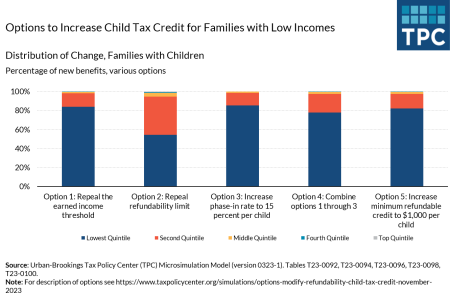As a kid growing up in suburban Detroit, it was frequently noted that our town “looked down” on Canada . . . literally. It was a bad joke based on a geographical quirk. We lived in the only part of the United States that was due north of Canadian soil.
We soon learned that it wasn’t nice to poke fun at our neighbors. I’ve been atoning for my indiscretions ever since. To that end, I’ll take this opportunity to comment favorably on a recent development in Canadian tax law.
Canada is getting serious about a digital services tax. Americans should be fine with that — despite the hostile reactions in Washington. A bit of context will explain why Canada’s DST proposal is nothing to get worked up about.
The Next Big Thing
DSTs are all the rage. A DST is a gross receipts tax imposed at a low rate on a narrow category of economic activity. By contrast, the corporate income tax is a net-basis tax imposed at much higher rates on a broader range of economic activity. A decade ago, nobody had a DST. Today, a few dozen countries have enacted some version of it, and many others are considering it.
A DST is that rarest of birds — a new tax that’s generally popular with citizens and politicians alike. That’s probably because the tax is perceived as a way to export the local tax burden to nonresident corporations — the same ones that are raking in huge profits and often don’t pay much income tax in the places where they have legions of users.
DSTs are sometimes described as a “backstop” to the conventional corporate income tax, although the description does them a disservice. It’s widely acknowledged that gross receipts are a poor proxy for a company’s profitability. In substance, the DST is closer to a supplemental VAT. It targets the local consumption of digital services, not the profitability that arises from them.
It’s true that DSTs are a unilateral assertion of taxing rights. So what if they are?
A unilateral tax might feel misplaced in an area that’s regularly influenced by bilateral or multilateral cooperation. However, a distinguishing characteristic of DSTs is that they are a destination-based tax — unlike income taxes. No country requires permission from anybody else to enact a destination-based tax. There’s nothing offensive about the unilateral nature of the DST — just as there’s nothing offensive about the unilateral nature of VAT.
Back in 2021 the Canadian Department of Finance started to lay the groundwork for a DST that would be imposed from January 2024, with retroactive effect from January 2022. The United States immediately complained that Canada’s DST proposal was discriminatory because so many of the affected firms were U.S.-based companies. U.S. officials threatened Canada with a retaliatory trade response, as they did to other countries with DSTs.
Two aspects of the U.S. response were flawed.
First, there is nothing about DSTs that’s inherently discriminatory, strictly speaking. If the tax seems discriminatory in effect, that’s because U.S. firms dominate the global tech sector. If Spotify (Sweden), Movistar (Spain), SAP (Germany), or Tencent (China) become big enough, they too will be subject to DSTs. Objectively, nobody who takes a serious look at DSTs would conclude that they’re discriminatory.
Second, the hostile U.S. reaction to DSTs ignores the near certainty that the economic burden of the tax would be passed along to the end users of digital services provided in Canada . . . which is to say, Canadians. Every company that does business in a foreign consumer market is well acquainted with VAT. Those firms possess a lot of expertise in passing the VAT burden on to final consumers. They’ll do the same for DSTs. This process of pricing adjustments has already occurred in other jurisdictions with DSTs. It will happen in Canada, as well.
Bottom line: It should not bother the U.S. government that a foreign government wants to enact a tax that will predominantly be paid by foreign consumers.
The Cool Kids Aren’t Waiting
January 2024 is just around the corner. The world wants to know whether Canada will voluntarily delay its DST. Many other nations are doing just that, adhering to an OECD-brokered agreement.
The idea is that no country involved in the OECD’s inclusive framework (which consists of about 140 nations) would apply its DST until the earlier of January 2025 or the entry into force of a multilateral convention on the OECD’s pillar 1 reform proposal. Conceptually, pillar 1 and DSTs scratch the same itch. The governments of the world have agreed to eliminate their DST regimes if pillar 1 becomes a reality.
Many countries have signed off on the delay. Sure, they’re keen to implement their DSTs, but they don’t want to disrupt the significant progress to date on pillar 1. Canada, however, has not agreed to delay a thing. It recently published revised legislation that makes clear that progress toward DST implementation is not slowing — not even for the demands of its close neighbor and largest trade partner. If you think about it, there’s wisdom in Canada’s approach.
The solution here is simple. Canada should apply its DST from January 2024, as planned, subject to one important caveat: All revenue collected under the DST (initially paid almost entirely by U.S.-based tech firms) shall be fully refunded if pillar 1 eventually takes effect — as evidenced by the successful implementation of a multilateral convention that is scheduled to be unveiled toward the end of 2023.
That’s a fair resolution for both Canada and the United States. It means that Canada would be obliged to return every penny of DST revenue to the U.S. companies that paid it . . . but only if pillar 1 succeeds. If pillar 1 fails for any reason, Canada would retain the DST proceeds. This creates an incentive for the United States to not defeat or indefinitely delay the multilateral convention.
This is the same approach that’s being taken in the United Kingdom and France, which already have DSTs on the books. Basically, Canada is seeking to do the same. When you consider the full picture of what’s happening globally, there’s no reason to look down on that.
Read the full article here








